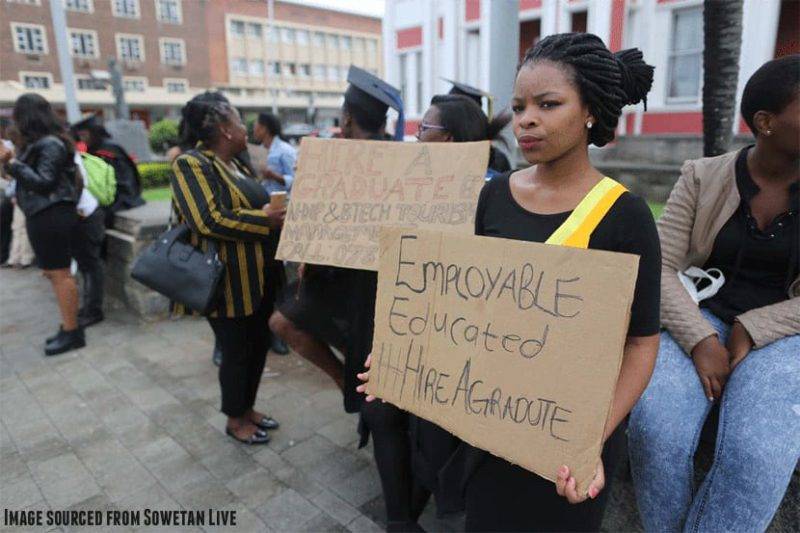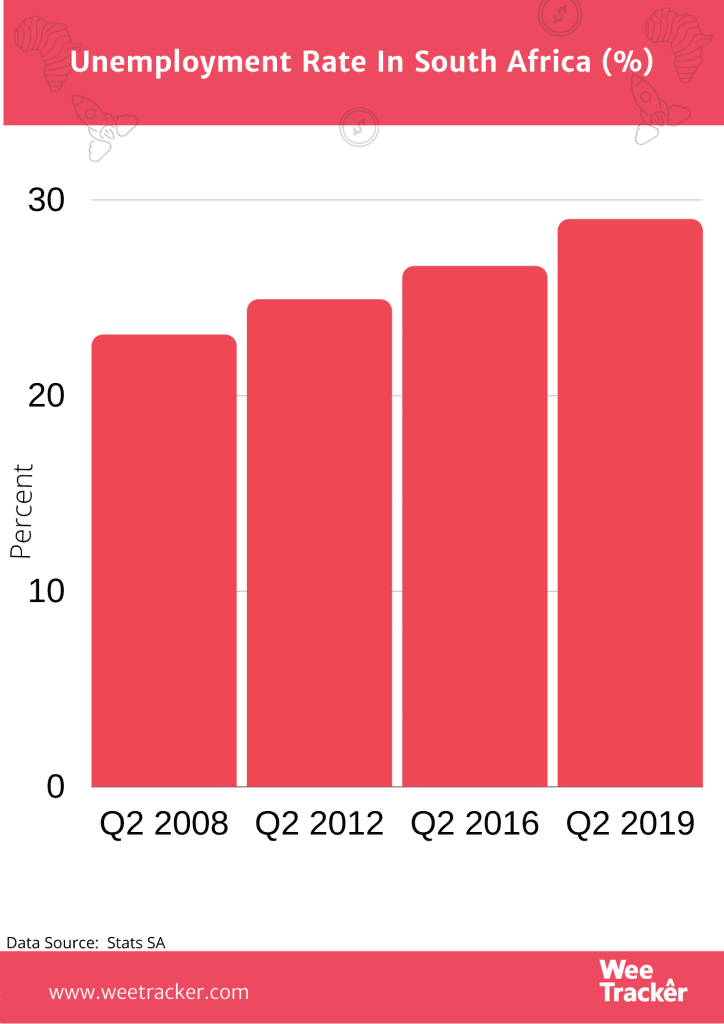Post-Lockdown South Africa: The Virus Took Lives, The Lockdown Took Jobs

The virus took lives, the lockdown took jobs
When a virus spreads, it often brings hardship as a plus one. And many South Africans are starting to feel the heat.
Despite the continued rise in COVID-19 cases which have now exceeded 27,000 in South Africa, the country’s lockdown measures have been eased gradually since May 1, with the aim of ending strife by getting people back to work.
But for many South Africans, there’s no work to get back to — not anymore. Apparently, there has been a flurry of job losses since the lockdown measures kicked in. Many people who were gainfully employed when the country shut down found themselves unemployed after the phased restart.
South Africa first went into a complete nationwide lockdown on March 26 and businesses began to feel the pressure almost immediately. Despite palliatives and fiscal stimulus from the government, many businesses have been unable to avoid the bloodbath that has seen many workers lose their jobs.
The view from the Commission for Conciliation, Mediation, and Arbitration (CCMA), is that there has been a huge influx of people who have been put out of work.
In a discussion with the South African Broadcasting Corporation (SABC), Sello Morajane, Director and CEO of CCMA, revealed that the commission was overwhelmed by the huge influx of people who lost their jobs when the CCMA opened its offices across the country on Monday, May 18.
Morajane said complaints about unpaid salaries, slashed paychecks, and disputes around staff being forced to take unpaid leave have been rife. He also remarked that many of the CCMA cases are due to retrenchments caused by small and medium-sized businesses closing down.
According to him, there has also been a surge in cases of large businesses retrenching staff as a consequence of the fallout of the lockdown and COVID-19 pandemic.
The hardest-hit sectors
As revealed by the CCMA Director, the lockdown took its toll on many industries and virtually all sectors. But the most affected businesses are in the business and professional sector, retail sector, private security, and food and beverage segment (including restaurants).
Things might get worse
For a country with an already dire unemployment situation, the new wave of job losses signals that things are likely to get even worse.
As of Q2 2019, the unemployment rate in South Africa stood at 29 percent. As a matter of fact, the unemployment rate in South Africa averaged 25.79 percent from 2000 until 2019, reaching an all-time high of 30.40 percent in the third quarter of 2002 and a record low of 21.50 percent in the fourth quarter of 2008.

Morajane expects the situation to get worse. He said many companies are cash-strapped and will either not be able to pay salaries or even have to close their doors.
“We expect the number of CCMA complaints to increase in the next three months – it will not go down,” Morajane recently told eNCA.
In an earlier interview with Centurion Rekord, he said small businesses, which are the biggest producers of employment and contributed towards reducing the unemployment rate in SA, were closing.
“A large number of applications were made by small and medium businesses affected by the lockdown regulations,” said Morajane.
“Just purely on the lockdown process, we have experienced 17 referrals of large-scale dismissals, which is affecting 3,344 employees.”
He added, “We have also received 151 referrals for section 189 (A) applications which were not large-scale; however, 133 are employees retrenched which affected one employee.”
Morajane said approximately 40,000 cases involving domestic workers were currently being disputed, though a few of them were registered before the lockdown.
The unemployment crisis that is prevalent across many parts of the developing world is generally attributed to a widening chasm between population growth and economic malaise.
With South Africa’s GDP expected to contract by as much as 7 percent this year — not to mention talks that it might take 3 years before the country bounces back from the setback caused by the pandemic and lockdown — these are really turbulent times.
Featured Image Courtesy: SowetanLife